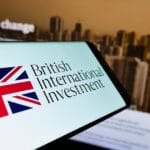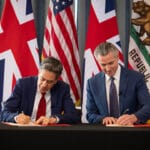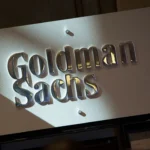Stegra Secures $41 Million from Sweden to Support Net Zero Steel Project

• Sweden allocates $41 million in new state financing to Stegra, adding to a multi-year public support package for near-zero emissions steel.
• The funding is expected to strengthen Stegra’s push to secure up to $1.1 billion in remaining capital for its Boden facility.
• State backing forms part of Sweden’s broader industrial decarbonization strategy amid rising pressure on heavy industry competitiveness.
Stockholm Moves to Bolster Green Steel Capacity
Sweden has granted 390 million crowns ($41 million) to green steel developer Stegra, adding fresh public financing to one of Europe’s most closely watched industrial decarbonisation projects. The award, announced Wednesday by the Swedish Energy Agency, comes as Stegra races to close the remaining funding required to complete its hydrogen-based steel plant in Boden.
“The project has good potential to accelerate the transition in the iron and steel industry,” the agency said. The authority emphasised that the new support is intended to increase Stegra’s chances of securing the additional capital needed from investors and banks.
Sweden has positioned itself as Europe’s proving ground for fossil-free heavy industry, leveraging abundant low-carbon electricity and a policy environment tilted toward rapid industrial transformation. But the strategy has faced setbacks, including the recent bankruptcy proceedings involving Northvolt’s battery operations. That context has sharpened scrutiny on projects such as Stegra, where technology, capital flows and national industrial policy intersect.
Financing Push Intensifies
Stegra said in October that it was seeking up to $1.1 billion in fresh financing to complete its fully integrated near-zero emissions steel facility. The company has previously secured loans and equity totalling €6.5 billion ($7.5 billion). The new Swedish grant forms part of the country’s Industrial Leap programme and follows a €100 million allocation awarded in September 2024, which itself stemmed from a €265 million measure approved under EU State aid rules.
Today’s award, equal to roughly €37 million, reflects continued EU-aligned state support, though short of the total that Sweden had sought Brussels’ approval for. Of the initial Swedish-EU package, 1.2 billion crowns was disbursed, while an additional 1.6 billion crowns was withheld pending further review. Stegra applied again to access that remaining amount but has received only part of it.
Stegra acknowledged the gap, stating: “Although there is a gap to what the government requested and received EU approval for, we can now take the next step together with the financiers.”
CEO Henrik Henriksson said the latest state grant reinforces investor confidence at a critical stage. He noted earlier this month that Stegra has secured about half of the financing required and expects the remainder to come from banks within six months. Extra state support, he added, “would send a strong signal to banks and investors that Sweden backed the project.”

RELATED ARTICLE: Microsoft Partners with Stegra to Accelerate Market for Near-Zero Emission Steel
Conditions and Governance
The Swedish Energy Agency attached explicit conditions to the funding, requiring Stegra to demonstrate by spring 2026 that it has secured sufficient capital to complete the project. If it cannot meet that threshold, the grant may not be fully realised. Such conditionality aligns with emerging EU state-aid norms that emphasise risk-sharing between public and private investors in large-scale climate-industry projects.
“The support to Stegra is conditional on the company being able to demonstrate, by spring 2026 at the latest, that they have managed to secure sufficient capital to complete the project,” the agency said.
For policymakers, the requirement provides a safeguard against stranded public spending. For investors, it sets a clear timeline for de-risking one of Europe’s flagship hydrogen-steel ventures.
Industrial Competitiveness at Stake
Stegra’s project is being closely watched by steel buyers, utilities, hydrogen developers and EU climate-industry officials. It combines large-scale renewable electricity, on-site hydrogen production, and a fully integrated steelmaking process designed to eliminate nearly all carbon emissions. If delivered at commercial scale, the Boden plant would become one of Europe’s earliest proof points that industrial decarbonisation can be achieved without compromising competitiveness.
Henriksson said the new award “gives us the possibility to strengthen Swedish and European competitiveness.” He added: “There is still a gap to what the EU has approved, and we hope that further steps can be taken to close it and provide a more level playing field in relation to other projects.”
Implications for Investors and C-Suite Leaders
For executives across steel, mining, utilities and finance, Stegra’s trajectory highlights the changing nature of capital allocation in heavy industry decarbonisation. Large-scale green industrial projects are moving into decisive construction phases, requiring blended finance, sovereign support and clear regulatory direction. Sweden’s decision to extend additional public funding illustrates how governments are seeking to maintain momentum despite cost pressures, inflation and volatile capital markets.
The outcome will shape Europe’s ability to scale low-carbon steel while competing with emerging hubs in the Middle East, North America and Asia. For investors, the governing question is whether policy clarity and state support will remain strong enough to carry early-stage projects across the financing finish line.
As Sweden’s green industrial policy evolves, the Stegra plant in Boden now sits at the centre of a broader regional effort to prove that heavy industry can transition at a pace aligned with EU climate objectives while remaining globally competitive.
Follow ESG News on LinkedIn












